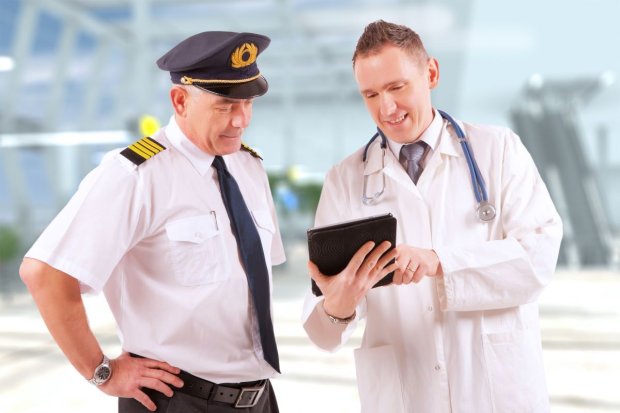Mental Health Awareness in Aviation: Supporting Pilots

In the world of aviation, where precision, discipline, and focus are top priorities, the mental health of pilots is a critical but often overlooked concern. The demands of irregular schedules, grueling hours, jet lag, and the relentless pressure to perform can take a toll on the well-being of those responsible for our air travel safety. However, it requires a lot of courage to ask for help. A study published in the Journal of Occupational and Environmental Medicine surveyed nearly 4,000 pilots and found that 56% had avoided seeking healthcare because they feared losing their medical clearance to fly.
In this article, Jainita Hogervorst, Director of Aerviva Aviation Consultancy, a company based in Dubai specializing in aviation recruitment and document management, explores the challenges faced by pilots and the importance of recognizing and addressing the mental health needs to ensure their welfare and the safety.
Understanding the Mental Challenges Faced by Pilots
A recent study, focusing on burnout as an indicator of the psychological health of a pilot, conducted by E. Demerouti, W. Veldhuis, C. Coombes, and R. Hunter in 2019, showed that at a range of airline companies from low-cost carriers to traditional flag carriers and operating different types of flights, 40% of the pilot’s experience very high burnout, whereas 20% could be classified as having high burnout.
According to the Director of Aerviva Aviation Consultancy, pilots responsible for our safe air travel confront a set of distinct stressors that significantly affect their mental well-being. These challenges include irregular work schedules, long hours, the constant battle with jet lag, and the unrelenting pressure to perform. “Pilots often face unpredictable work hours. They might work during the day, at night, on weekends, or even on holidays. Such irregular schedules disrupt their sleep patterns, make it hard to balance work and personal life, and lead to fatigue and stress. Furthermore, it is important to understand that pilots do not just fly planes; they also spend considerable time on pre-flight preparations, post-flight duties, and safety checks. These extended work hours can keep them away from home and family for extended periods, leading to isolation and straining relationships,” explains Hogervorst.
She also highlights the pressure pilots have to face in their daily life. “Pilots are entrusted with passengers’ safety and are under immense pressure to make quick and precise decisions. The need for flawless execution intensifies this pressure, as even minor errors can have significant consequences in the aviation industry.”
How to Deal with Stress and Mental Health Challenges? The Role of Airlines
For pilots navigating the challenges of their profession, several resources and strategies are available to support their mental well-being. “First of all, we always recommend trusting mental health professionals. Pilots can benefit from the expertise of specialists such as therapists and counselors who specialize in addressing the unique stressors faced in aviation. Of course, joining support groups or peer networks can be immensely helpful as well. These groups provide a safe space for pilots to share experiences, seek advice, and receive emotional support from those who understand their profession’s demands,” says Hogervorst and mentions the example of all UK Air Transport Operators who are now mandated to implement a pilot Support Programme which includes using trained Pilot Peer volunteers.
There is no need to mention that airlines play a crucial role in safeguarding the mental well-being of their pilots, recognizing that a mentally healthy workforce is essential for safe and reliable air travel. According to Hogervorst, “Airlines bear the responsibility of ensuring that their pilots have the necessary support systems in place to address mental health concerns. There are many various initiatives and programs initiated to support the mental well-being of the flight crews. For example, training programs that educate pilots and other crew members about recognizing signs of mental health issues and how to seek help when needed. Also, Pilot Assistance Programs are also popular. They offer confidential counseling services and resources to address a wide range of personal and work-related challenges. For example, “Pilot Well-being”. The Association holistically supports the pilot during distressing circumstances (be they professional, personal, or societal in nature) and stresses in their personal lives which may impact professional performance”.
Recognizing the Signs of Mental Health Issues
Pilots struggling with mental health issues may exhibit a range of signs and symptoms, including changes in behavior, physical symptoms, performance decline, or emotional changes. “Usually, sudden changes, such as increased irritability, withdrawal from social interactions, or uncharacteristic outbursts, a noticeable decline in a pilot’s performance, including lapses in concentration, decision-making errors, or missed flight procedures, can be a sign of mental distress. Pilots may experience heightened anxiety, mood swings, or persistent sadness. Crew members play a critical role in noticing these signs and providing support to their colleagues. If another crew member observes concerning behavior or symptoms, they should address the problem and encourage the pilot to seek help or support,” explains Hogervorst.
In the study regarding the risk management system in aviation, conducted by S. Hulínská and J. Kraus in 2016, it was discovered that 88% of pilots reported that their colleagues appeared to be suffering from fatigue at the beginning of their duty, and 19% to be suffering from burnout at the beginning of their duty.
The Director of Aerviva Aviation Consultancy also mentions the importance of anonymous reporting systems. “Airlines should consider setting up confidential reporting systems that allow pilots to report mental health concerns without fear of retaliation, promoting open communication. Early detection of mental health issues is of paramount importance in the aviation industry.”


